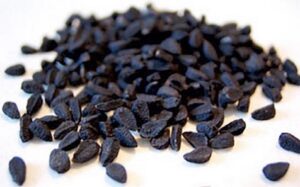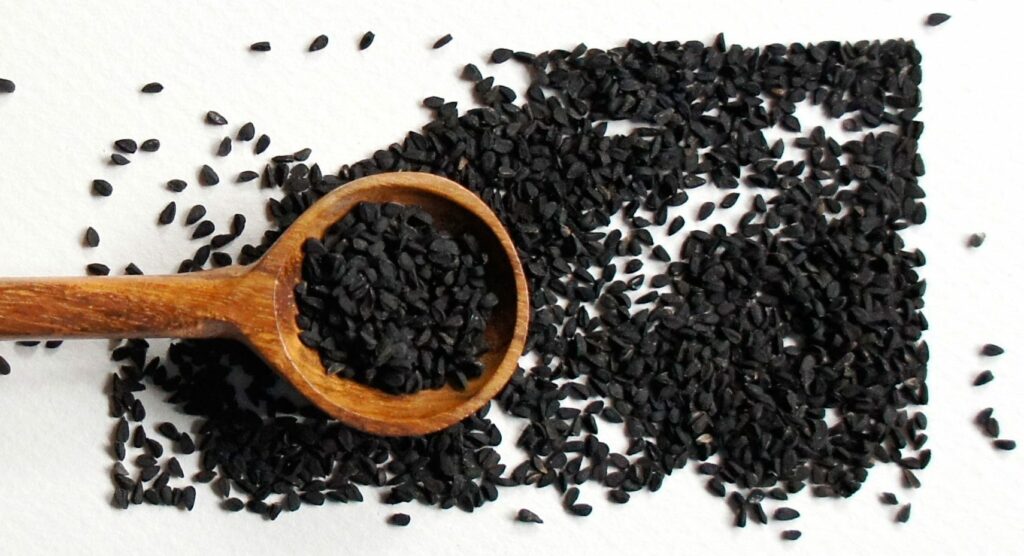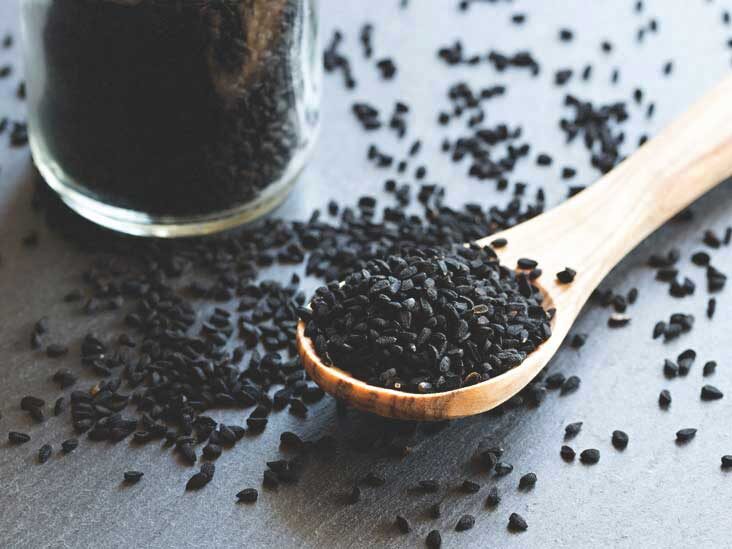If you’re looking for a natural way to lose weight and improve your overall health, you’ve likely come across kalonji. This small black seed has been used for centuries as a remedy for all kinds of ailments, but it has recently gained popularity in the health and wellness world for its potential to aid in weight loss. In this blog post, we’ll discuss the science behind kalonji, how it works, and some tips on incorporating it into your daily life. Read on to learn more about the potential benefits of using kalonji for weight loss.
Contents
What is Kalonji?

Kalonji is an annual herb that grows to about two feet in height. The plant has small, white flowers and black seeds that are used as a spice in many cuisines. Kalonji is also known as black seed, black cumin, and nigella Sativa.
The black seeds of the kalonji plant are rich in nutrients and have been used for centuries in traditional medicine to treat a variety of ailments. Kalonji is known to be effective in treating digestive disorders, respiratory conditions, and skin conditions. The seeds are also said to boost immunity and promote weight loss.
There is scientific evidence to support some of the traditional uses of kalonji. Studies have shown that kalonji can help treat indigestion and respiratory conditions such as asthma. Kalonji is also known to have anti-inflammatory, antioxidant, and antimicrobial properties.
While more research is needed to confirm the health benefits of kalonji, there is no doubt that this spice has a place in a healthy diet. Kalonji can be used in cooking or taken as a supplement. If you’re looking to add this superfood to your diet, look for kalonji supplements at your local health store or online retailer.
The Different Types of Kalonji
Kawajiri, also known as nigella sativa, is an annual herb that grows up to 20 inches in height. The plant produces small, black seeds that are used as a spice in many cuisines. Kalonji seeds have a bitter taste and a pungent smell. They are often used to flavor curries, vegetables, and rice dishes.
Kalonji seeds are rich in nutrients and offer a host of health benefits. They are a good source of iron, calcium, magnesium, phosphorus, potassium, zinc, and selenium. Kalonji seeds also contain thymoquinone, an antioxidant that has anti-inflammatory properties.
There are different ways to use kalonji seeds for weight loss. One way is to add them to your diet. You can do this by sprinkling them on your food or adding them to smoothies and juices. Another way is to take kalonji supplements in capsule form. If you’re looking for a natural way to lose weight, kalonji may be worth considering.
Pros and Cons of Kalonji for Weight Loss

Kawajiri or kalonji is the small, black seeds of the Nigella sativa plant. The oil extracted from these seeds is effective in reducing weight and improving metabolism.
Kalonji seeds contain a compound called thymoquinone, which is known to boost metabolism and promote weight loss. One study showed that subjects who took thymoquinone lost more weight and body fat than those who didn’t take the compound.
Kalonji oil is also rich in omega-3 fatty acids, which have been shown to reduce inflammation and promote weight loss. One study showed that omega-3 fatty acids helped obese rats lose weight and body fat.
However, there are some drawbacks to using kalonji for weight loss. Some of these are:
- Nausea and stomach upset: Kalonji seeds can cause nausea, vomiting, and stomach upset in some people.
- Increased appetite: Some people may experience increased hunger when taking kalonji supplements.Interactions with medications: Kalonji oil can interact with certain medications, such as blood thinners, so it’s important to talk to your doctor before taking it.
- Constant use: Kalonji needs to be taken regularly for it to be effective. If you stop taking it, the weight loss benefits will likely diminish. Overall, kalonji may be an effective supplement for weight loss and improved metabolic health. However, as with any supplement, it’s important to speak with your doctor before starting a new regimen.
What Foods to Eat with Kalonji?
If you’re looking to lose weight, kalonji may be a helpful addition to your diet. This Ayurvedic herb is said to boost metabolism and promote fat burning. Kalonji is also known as black seed or Nigella sativa.
To get the most out of kalonji for weight loss, it’s best to consume it with other healthy foods. Here are some suggestions:
Pair kalonji with cumin seeds and ginger root to make a detoxifying tea: One of the best ways to incorporate kalonji into your diet is by making a detoxifying tea. To make this, add equal parts of kalonji, cumin seeds, and ginger root to boiling water and let it steep for 10 minutes. Strain the mixture and drink up!
Mix kalonji with yogurt or smoothies: Yogurt and smoothies are great ways to get your daily dose of kalonji. You can mix 1 teaspoon of kalonji in plain yogurt and top it off with fresh fruit for a healthy snack, or add kalonji to a smoothie for an extra nutrient boost.
Sprinkle it on your salads: Another way to incorporate kalonji into your diet is to sprinkle it on salads. The seeds have a nutty flavor that pairs well with vegetables, so don’t be afraid to experiment!
Incorporating kalonji into your diet can be an easy and effective way to promote weight loss and improve your overall health. Just remember to talk to your doctor before starting any new supplement routine.
Kalonji Recipes

Kalonji recipes are easy to follow and can be made with ingredients that are readily available in most kitchens. When used in conjunction with a healthy diet and exercise, kalonji can help promote weight loss.
Some simple kalonji recipes include:
Kalonji tea
Boil 1 cup of water and add 1 teaspoon of kalonji seeds. Allow the tea to steep for 5 minutes before drinking. Some people like to add a bit of honey or lemon juice for flavor.
Kalonji oatmeal
Stir 1 teaspoon of kalonji into a bowl of cooked oatmeal. Top it off with your favorite fruits and nuts for a nutritious breakfast that’s sure to keep you full until lunchtime!
Kalonji chutney
Combine 2 teaspoons of kalonji, ¼ cup of yogurt, and ½ cup of chopped fresh mint in a blender. Blend until smooth and serve as a dip for naan bread or other Indian dishes.
Kalonji Oil
Some people also opt to take kalonji in the form of oil. This is a great option for those who don’t like the taste of the seeds. To make kalonji oil, heat 1 tablespoon of coconut oil over low heat and add 8-10 crushed kalonji seeds. Allow it to simmer for 10 minutes before straining it and storing it in an airtight container.
Kalonji Salad
Salad is a great way to get your daily intake of kalonji. Start with a base of leafy greens, such as spinach or kale. Add chopped vegetables, like tomatoes and cucumbers, as well as nuts and dried fruit. Finally, sprinkle 1 teaspoon of kalonji over the top for added flavor and nutrition.
Kalonji is an incredibly versatile ingredient that can be incorporated into many different recipes. By combining it with other healthy foods, you can enjoy the weight loss benefits of this ancient Ayurvedic herb while still eating delicious meals.
Alternatives to Kalonji for Weight Loss

If you are looking for alternatives to Kalonji for weight loss, there are a few options available. Some of these are:
Black Seed Oil
One of the most popular alternatives to Kalonji is Black Seed Oil. This oil is derived from the black seeds of Nigella sativa and is known for its anti-inflammatory and antioxidant properties. It also contains thymoquinone, which may help reduce weight by boosting metabolism.
Coconut Oil
Coconut oil is another great alternative for those looking for a natural way to lose weight. Also, Coconut oil is known for its ability to increase metabolism, burn fat, and regulate appetite.
Apple Cider Vinegar
Apple cider vinegar has been used as a natural remedy for many health conditions, including weight loss. It contains acetic acid, which may help reduce body fat and control hunger cravings.
Ginger Tea
Ginger tea is a natural remedy to aid weight loss. It contains gingerol, which helps regulate blood sugar levels and boost metabolism. Additionally, it can help reduce water retention, which may lead to a decrease in body weight.
Green tea is another popular choice for weight loss. It contains catechins, which can help boost metabolism and increase fat burning. Additionally, it helps reduce appetite and calorie absorption from meals.
In conclusion, Kalonji is a great natural way to promote weight loss. However, other alternatives are available for those looking for additional options. By combining Kalonji with healthy eating habits and exercise, you can achieve your weight loss goals.
Conclusion
All in all, kalonji is a powerful herbal remedy that can help naturally support your weight loss journey. The various health benefits of consuming this wonder herb along with its potential to aid in weight loss make it an ideal supplement for those looking to shed the extra pounds and improve their overall health. If you are considering adding kalonji to your diet plan, be sure to consult with a medical professional regarding the proper dosage and usage instructions. With regular use of this incredible seed, you may soon find yourself on the path toward achieving your desired weight goals.
Consider contacting FitMantra for additional information on nutrition and fitness. You can also get in touch with their nutrition experts through our online nutrition counseling, who can guide you through the process and help you achieve your fitness goals. You can also lose weight with the help of our weight loss program. Download our Fitness app on Android to learn more about us.
